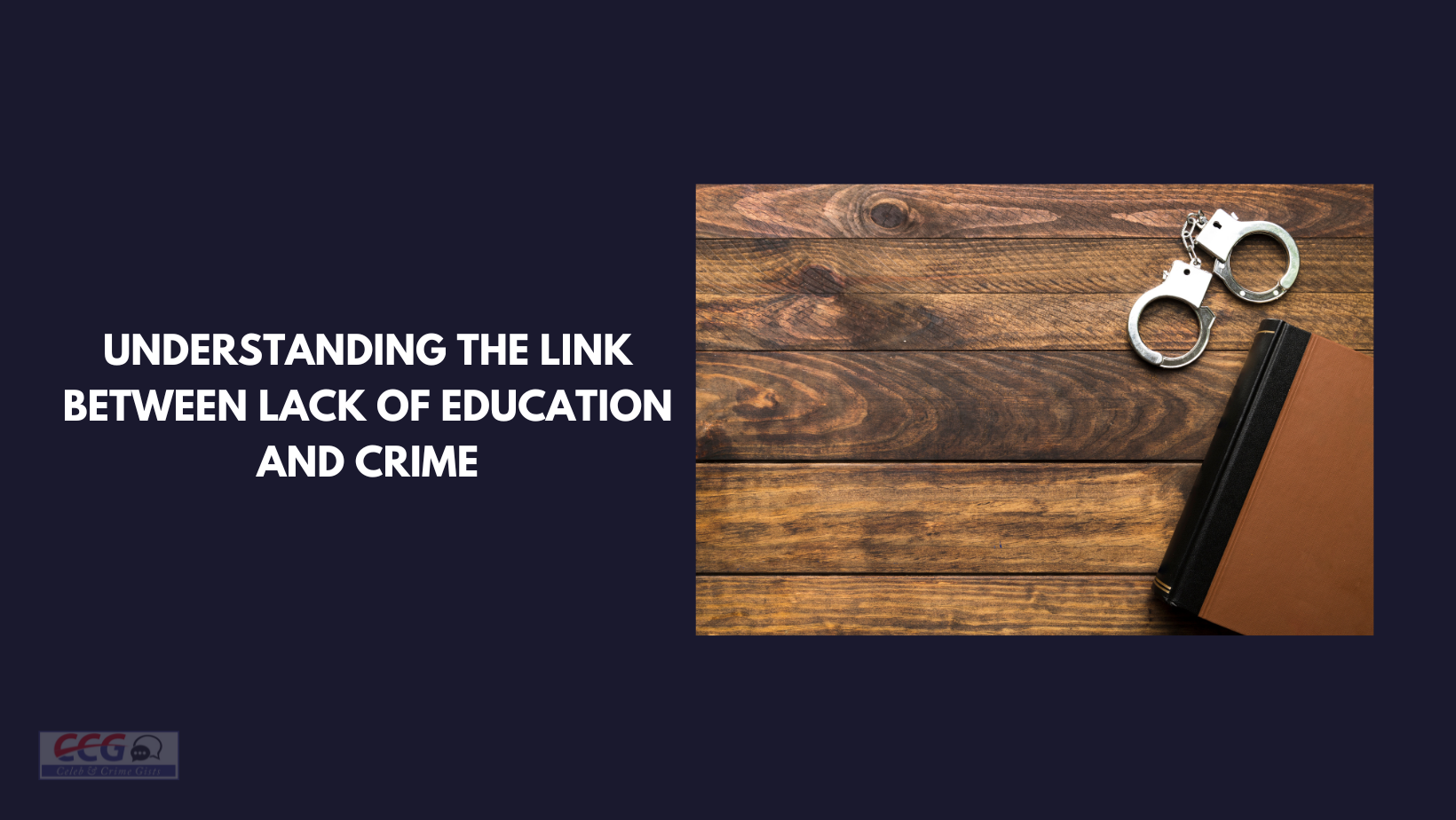Understanding The Link Between Lack of Education and Crime’ Education is a crucial element in building a successful and prosperous society. It provides individuals with the knowledge and skills needed to achieve their goals, become productive members of society, and contribute to the economy. However, not everyone has access to quality education, and this can have dire consequences for individuals and society as a whole. One of the most significant repercussions of a lack of education is the link between it and criminal behaviour. In this article, we will explore this link in detail and examine ways to break the cycle.
Understanding The Link Between Lack of Education and Crime:
The link between a lack of education and criminal behaviour is not a new concept. Studies have consistently shown that individuals who lack education are more likely to engage in criminal activities. Here are some of the ways a lack of education can contribute to criminal behaviour:

READ ARTICLE: The Effectiveness of CCTV in Reducing Crime
-
Limited job opportunities: Individuals who lack education often have limited job opportunities. This can lead to poverty, which is a significant risk factor for criminal behaviour.
-
Poor decision-making skills: Education provides individuals with critical thinking and decision-making skills. Without these skills, individuals may make poor decisions that can lead to criminal behaviour.
-
Lack of problem-solving skills: Education equips individuals with problem-solving skills. Without these skills, individuals may resort to criminal behavior to solve their problems.
-
Low self-esteem: A lack of education can lead to low self-esteem, which can contribute to criminal behavior as individuals seek validation from their peers.
-
Lack of social support: Education provides individuals with opportunities to build social networks, which can provide support during times of crisis. Individuals who lack education may not have access to these networks, leading to feelings of isolation and desperation.
Breaking the Cycle:
Breaking the cycle of a lack of education and criminal behavior is a complex issue. However, there are several steps that can be taken to address the problem:
-
Investing in education: Governments and communities must invest in education to ensure that everyone has access to quality education.
-
Providing job opportunities: Governments and communities must work to create job opportunities, particularly in areas with high rates of poverty and crime.
-
Providing support: Individuals who lack education need support to help them break the cycle. This can include mentoring, counseling, and access to social services.
-
Addressing underlying issues: Addressing underlying issues such as poverty, mental health, and addiction can also help break the cycle of a lack of education and criminal behavior.
FAQs:
Q: Is there a direct link between lack of education and crime? A: Yes, studies have consistently shown that individuals who lack education are more likely to engage in criminal activities.
Q: Can education alone prevent criminal behavior? A: No, education alone cannot prevent criminal behavior. However, it can provide individuals with critical skills and opportunities that can reduce the risk of criminal behavior.
Q: How can communities address the link between lack of education and crime? A: Communities can invest in education, create job opportunities, provide support to individuals who lack education, and address underlying issues such as poverty, mental health, and addiction.
Conclusion:
Education is a critical component of a successful and prosperous society. However, not everyone has access to quality education, and this can have dire consequences for individuals and society as a whole. One of the most significant repercussions of a lack of education is the link between it and criminal behavior. By investing in education, providing job opportunities, and addressing underlying issues, we can break the cycle of a lack of education and criminal behavior and build a safer and more prosperous society for all.


